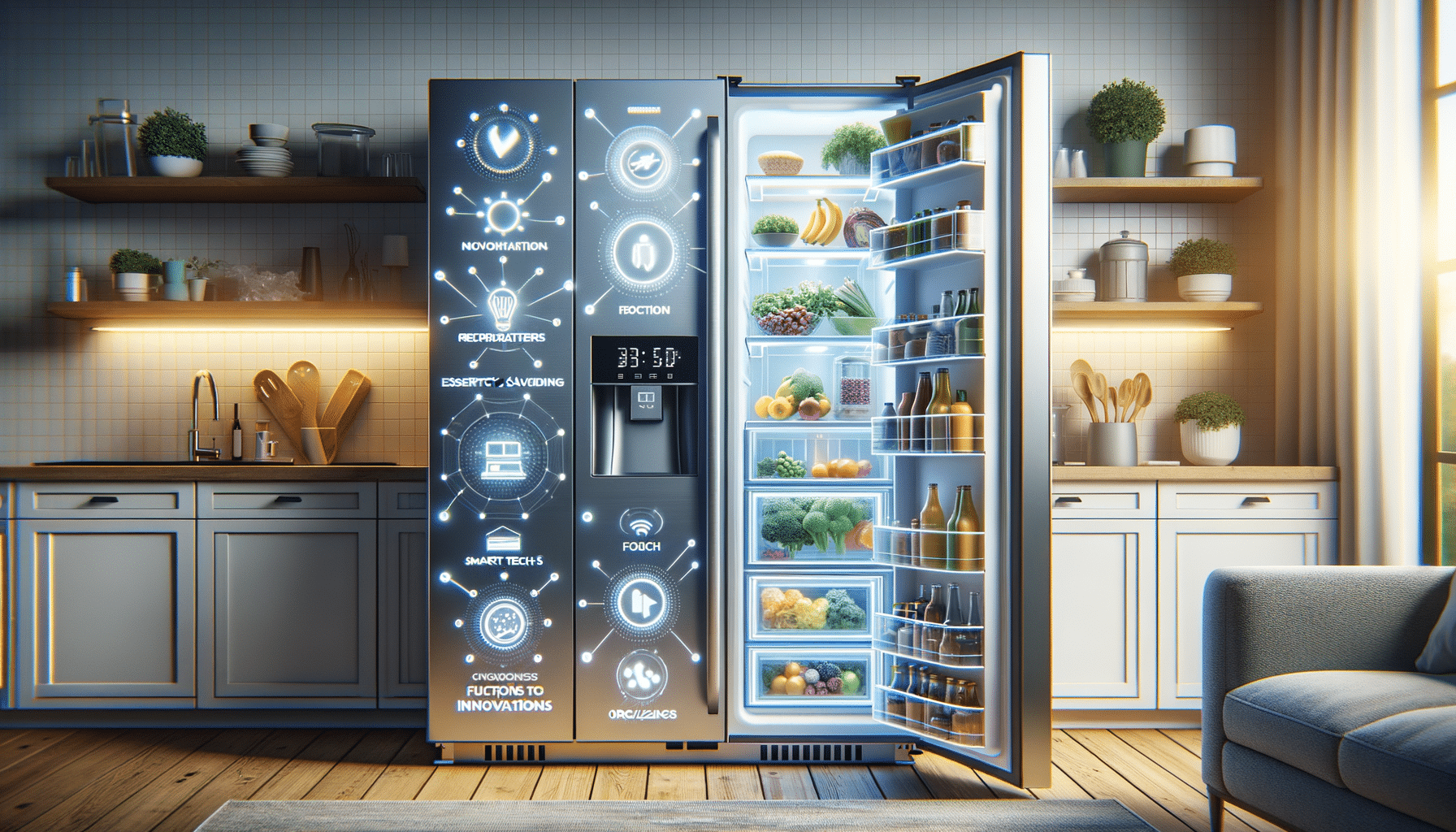
De Essentiële Gids voor Koelkasten: Van Functies tot Innovaties
Introduction to Home Refrigerators
Refrigerators have become an indispensable part of modern households, serving as the cornerstone of food preservation and storage. Their evolution from simple iceboxes to advanced appliances with smart technology reflects the strides made in home convenience and efficiency. Understanding the various features and advancements in refrigeration technology is crucial for making informed decisions when purchasing a new refrigerator.
Understanding Refrigerator Types and Sizes
Refrigerators come in various types, each designed to cater to different household needs. Common types include top-freezer, bottom-freezer, side-by-side, and French door models. Each type offers unique benefits and potential drawbacks. For instance, top-freezer models are often more affordable and energy-efficient, while French door models provide expansive storage and modern aesthetics.
Size is another critical factor. A refrigerator should fit comfortably in your kitchen space while providing adequate storage for your household. Standard sizes range from compact models, suitable for small apartments or offices, to large, family-sized units. Assessing your space and storage needs will help you choose the right size.
- Top-Freezer: Known for affordability and energy efficiency.
- Bottom-Freezer: Offers easy access to fresh food items.
- Side-by-Side: Provides equal access to both refrigerator and freezer sections.
- French Door: Combines style with functionality, offering spacious storage.
Key Features and Technologies
Modern refrigerators boast an array of features designed to enhance food preservation and user convenience. Adjustable shelves and door bins allow for flexible storage configurations, while humidity-controlled crisper drawers keep fruits and vegetables fresh longer. Advanced models may include water and ice dispensers, temperature-controlled zones, and even smart technology for remote monitoring and control.
Smart refrigerators are gaining popularity, offering connectivity with smartphones and home networks. These appliances can provide notifications about maintenance, track inventory, and suggest recipes based on available ingredients. While these features can add to the cost, they offer significant convenience and efficiency for tech-savvy users.
- Adjustable Shelves: Enhance storage flexibility.
- Humidity-Controlled Drawers: Extend the freshness of produce.
- Smart Technology: Allows remote monitoring and control.
Energy Efficiency and Environmental Impact
Energy efficiency is a crucial consideration when selecting a refrigerator, as it directly affects your utility bills and environmental footprint. Look for models with an Energy Star rating, which signifies adherence to energy-saving standards. Energy-efficient refrigerators use advanced compressors and insulation materials to reduce power consumption without compromising performance.
In addition to energy efficiency, consider the environmental impact of refrigerants used in the appliance. Modern refrigerators often use eco-friendly refrigerants that have a lower impact on global warming compared to older models. Choosing an environmentally responsible refrigerator can contribute to sustainable living practices.
- Energy Star Rating: Indicates superior energy efficiency.
- Eco-Friendly Refrigerants: Reduce environmental impact.
Maintenance and Longevity
Proper maintenance is essential to extend the lifespan of your refrigerator and ensure optimal performance. Regular cleaning of coils, checking door seals, and defrosting the freezer are basic maintenance tasks that can prevent common issues. Additionally, keeping the refrigerator at the recommended temperature settings can enhance efficiency and food safety.
Investing in a high-quality refrigerator with a solid warranty can also contribute to its longevity. Many manufacturers offer extended warranties covering parts and labor, providing peace of mind and protection against unexpected repairs. A well-maintained refrigerator can last over a decade, making it a worthwhile investment for any household.
- Regular Cleaning: Prevents dust buildup and maintains efficiency.
- Checking Seals: Ensures airtight doors for optimal cooling.
- Temperature Settings: Maintains food safety and energy efficiency.
Conclusion: Choosing the Right Refrigerator
In conclusion, selecting the right refrigerator involves considering various factors, including type, size, features, energy efficiency, and maintenance requirements. By understanding these elements, you can make an informed decision that aligns with your household needs and budget. Whether opting for a basic model or a high-tech smart refrigerator, the key is to choose an appliance that enhances your kitchen’s functionality and complements your lifestyle.


